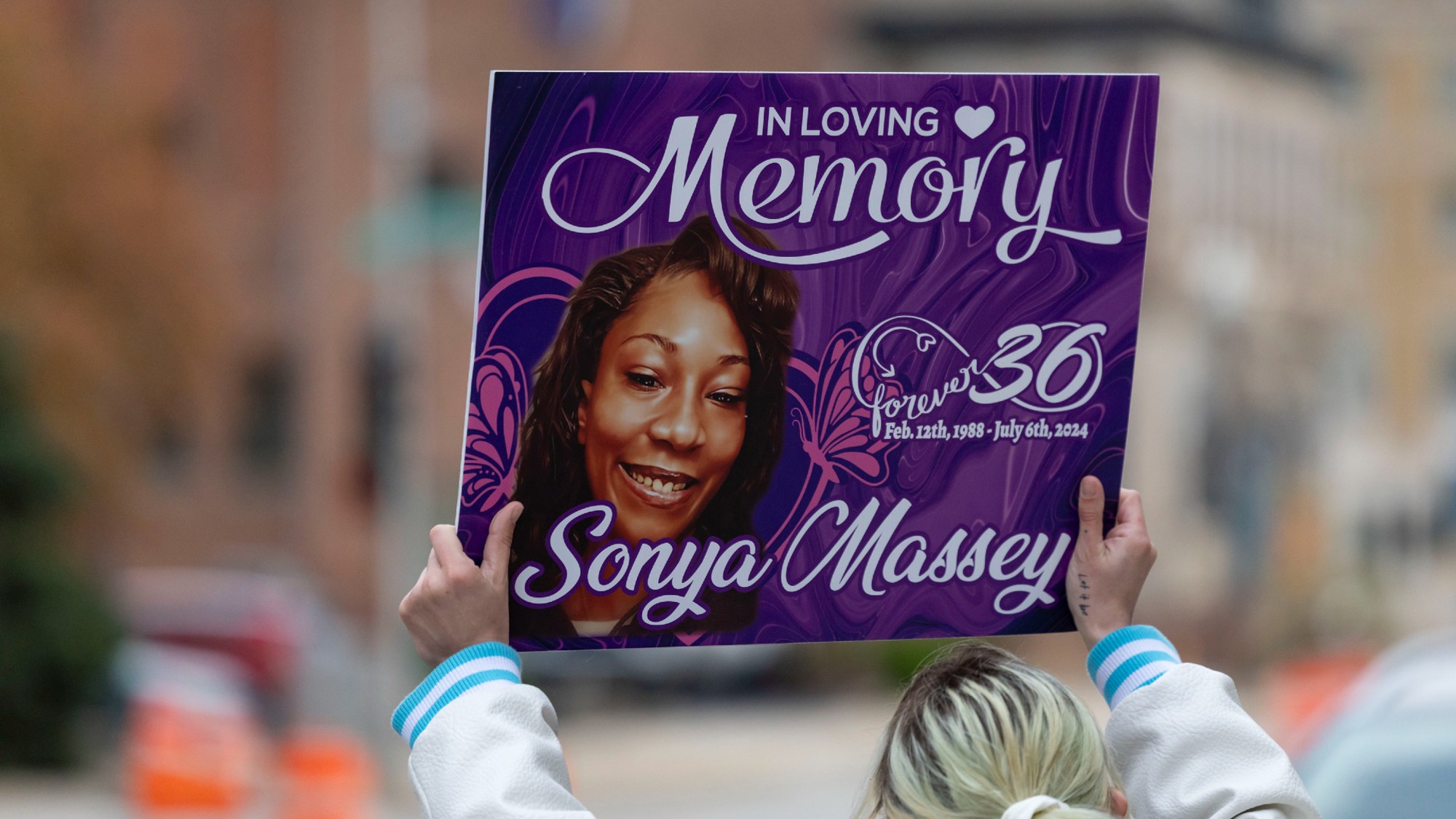Why more people are being murdered in London
Fatal stabbing of boy in Bellingham takes 2018 total to 116 - the same as for the whole of last year

A free daily email with the biggest news stories of the day – and the best features from TheWeek.com
You are now subscribed
Your newsletter sign-up was successful
The fatal stabbing of 15-year-old boy in southeast London on Thursday has fuelled fears about rising knife crime in the English capital.
The victim, named locally as Jai Sewell and described by neighbours as a “sweet boy”, was stabbed at a chicken shop in Bellingham, in Lewisham borough. Emergency services were called to the scene at 5:20pm and he was taken to hospital, where he later died.
The BBC reports that following the killing, a “Section 60 order” has been authorised in Lewisham between 12pm and 3am on Saturday. The act allows police officers to stop and search people without suspicion.
The Week
Escape your echo chamber. Get the facts behind the news, plus analysis from multiple perspectives.

Sign up for The Week's Free Newsletters
From our morning news briefing to a weekly Good News Newsletter, get the best of The Week delivered directly to your inbox.
From our morning news briefing to a weekly Good News Newsletter, get the best of The Week delivered directly to your inbox.
A local resident told the broadcaster that he believed young people “were turning to knife crime out of fear”.
“They are looking for the closest object to use to defend themselves. They’re scared,” said the man, who was not named.
Figures released last month by the Office for National Statistics (ONS) show that in the 12 months to June 2018, police recorded a total of 14,987 knife crimes - representing a 15% year-on-year rise.
The latest total included 91 fatal stabbings and 170 rapes or sexual assaults using a blade.
A free daily email with the biggest news stories of the day – and the best features from TheWeek.com
Rebecca Lawrence, chief executive of the London Mayor’s Office for Policing And Crime (Mopac), says that some teenagers were undergoing “emotional desensitisation” because of the number of murders in their areas, The Independent reports.
That fear is shared by Temi Mwale, the founding director of social enterprise The 4Front Project. “Over the last 20 years, there has not been adequate support for young people impacted by violence,” she told Al Jazeera. “Why that is so significant is because it has created violent environments where violence is ingrained, where we've got a culture of desensitisation.
“If your friend is stabbed and killed, there is no support available to help you come to terms with the loss.”
Metropolitan Police Commissioner Cressida Dick says the force is on track to ensure that violent crime in London decreases “considerably” over the next year.
“We must focus on violent crime and in London and I’m glad to say the figures have stopped going up and up, as they have in the last three years,” she told BBC Radio 4’s Today programme.
But according to the London Evening Standard, Thursday’s stabbing is the 116th murder recorded in the capital this year - the same as the total for the whole of 2017.
Writing in The Guardian, Mwale says that “the only way to radically reduce violence over the next few years is to invest in a long-term approach”, pointing to an initiative known as the Violence Reduction Unit (VRU) in Glasgow. The unit treats knife crime as a public health crisis, and uses health, education and social work to tackle the issue.
According to VRU statistics, murder rates in Glasgow fell by 47% between 2007-08 and 2016-17, and no one under the age of 20 was killed with a knife in 2016-17. The scheme has attracted the attention of London police branches, with Cressida Dick visiting its co-founders Karyn McCluskey and John Carnochan earlier this year. In September, London Mayor Sadiq Khan announced the launch of a London-based VRU.
-
 The environmental cost of GLP-1s
The environmental cost of GLP-1sThe explainer Producing the drugs is a dirty process
-
 Greenland’s capital becomes ground zero for the country’s diplomatic straits
Greenland’s capital becomes ground zero for the country’s diplomatic straitsIN THE SPOTLIGHT A flurry of new consular activity in Nuuk shows how important Greenland has become to Europeans’ anxiety about American imperialism
-
 ‘This is something that happens all too often’
‘This is something that happens all too often’Instant Opinion Opinion, comment and editorials of the day
-
 Ex-Illinois deputy gets 20 years for Massey murder
Ex-Illinois deputy gets 20 years for Massey murderSpeed Read Sean Grayson was sentenced for the 2024 killing of Sonya Massey
-
 Why have homicide rates reportedly plummeted in the last year?
Why have homicide rates reportedly plummeted in the last year?Today’s Big Question There could be more to the story than politics
-
 How the ‘British FBI’ will work
How the ‘British FBI’ will workThe Explainer New National Police Service to focus on fighting terrorism, fraud and organised crime, freeing up local forces to tackle everyday offences
-
 How the Bondi massacre unfolded
How the Bondi massacre unfoldedIn Depth Deadly terrorist attack during Hanukkah celebration in Sydney prompts review of Australia’s gun control laws and reckoning over global rise in antisemitism
-
 ‘Stakeknife’: MI5’s man inside the IRA
‘Stakeknife’: MI5’s man inside the IRAThe Explainer Freddie Scappaticci, implicated in 14 murders and 15 abductions during the Troubles, ‘probably cost more lives than he saved’, investigation claims
-
 3 officers killed in Pennsylvania shooting
3 officers killed in Pennsylvania shootingSpeed Read Police did not share the identities of the officers or the slain suspect, nor the motive or the focus of the still-active investigation
-
 Christian Brückner: why prime suspect in Madeleine McCann case can refuse Met interview
Christian Brückner: why prime suspect in Madeleine McCann case can refuse Met interviewThe Explainer International letter of request rejected by 49-year-old convicted rapist as he prepares to walk free
-
 Dash: the UK's 'flawed' domestic violence tool
Dash: the UK's 'flawed' domestic violence toolThe Explainer Risk-assessment checklist relied on by police and social services deemed unfit for frontline use